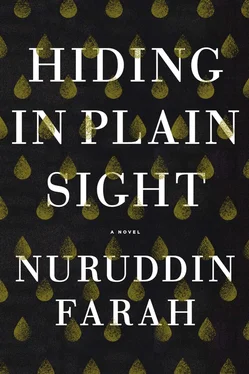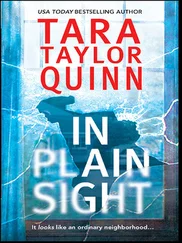Bella signs the forms without reading them. Gunilla has earned her trust.
“As the children’s mother, what are her chances of convincing a judge to grant her custody now that she is back in the same country as they are and since she is the only living biological parent and they are under the age of majority — are there any good legs she can stand on?”
“The law is not favorable to her side.”
“Besides, Valerie has a way of spreading vitriol the same way one spreads butter on one’s toast,” says Bella, and she tells Gunilla about Valerie’s trying to convince Salif that his father had wanted to be cremated.
“But that is absurd. She hasn’t seen the will.”
The telephone on Gunilla’s desk squeals. She picks it up gingerly, as if it might burn her fingers, and holds it away from her ear, speaking rather disinterestedly into the mouthpiece. “Yes, who is it?”
A moment after the speaker on the other end of the line identifies herself, Gunilla indicates to Bella that she wishes to take the call and makes as if she is leaving her office. Bella motions to her, waving, and mouthing the words, “I’ll step out for a moment,” then does so.
She tiptoes out of Gunilla’s office and then takes the opportunity to call Salif and Dahaba, who don’t answer. Then, remembering how the young are more fond of text messages, she sends one to Salif, who responds instantly with three comforting words, “All well here.” Even though she is tempted to ask where “here” is, Bella restrains herself from doing so.
She hears her name being called and sees Gunilla waving to her from the doorway of her office. “Please pardon the interruption and let’s resume our conversation where we left off.”
Bella says, “I would rather not know what Valerie said.”
Gunilla agrees. “Fair enough. I won’t tell you.”
They sit opposite each other. Gunilla spreads the relevant papers on a low table and asks Bella to bring out her documents. Gunilla purposefully states what they are as if their conversation were being recorded. Gunilla reads the list aloud: an original copy of the will and statement. She receives the stapled document consisting of three pages and studies it with care, comparing it for the second or third time to the notarized and witnessed copy she has on file.
Gunilla rises to her feet, opens a cupboard, and brings out a folder with the name AAR on its cover. The documents in this folder have been brought from Mogadiscio and they include several personal papers found in his apartment and office.
“And here is Aar’s passport,” says Gunilla.
Bella receives it, her hand shaking.
“Please open it and check,” says Gunilla.
Bella does as told.
Gunilla then rummages in her briefcase and brings out a one-page document — Aar’s death certificate issued by the UN office in Mogadiscio. Again, Bella scrutinizes the document, saying nothing.
“Please come with me,” Gunilla says to Bella.
“Where are we going?”
“To photocopy every single piece of paper, including the notarized and witnessed documents, which, I understand, are also with Aar’s attorneys in England.”
Gunilla leads the way after locking her office.
“Why are you making photocopies?”
“The originals will be stored here as reference.”
When they are back in her office, Gunilla replaces the documents in their correct folders and puts all of these into a drawer, which she locks with a key. Then she returns Bella’s originals, her passport, and the copy of the will she had come with, saying, “Please keep them in a safe place in case somebody wants to see them.”
Gunilla then warns Bella to prepare mentally for a great shock. She says, “I am now going to hand over to you Aar’s personal effects that were found in the taxi, including the shoulder bag he was intending to bring along to Nairobi, as well as his personal computer. You are a strong woman, and you will understand if I don’t preface this ordeal further. I see you have come prepared for it,” she adds, noting Bella’s carryall.
It is Bella’s turn to break down at the sight of Aar’s favorite pair of jeans, his jogging shoes, his sunglasses, his Yankees cap, his T-shirts. Then Gunilla hands over a small plastic-covered shoulder bag, which she says contains Aar’s Mac computer and his two mobile phones, which Bella knows are one for Somalia and one for Nairobi.
Bella says, “Do you know whether anyone has his passwords?”
“Ask Salif. He never gave them to me,” says Gunilla.
But Bella knows there is no need to involve Salif for now. Unless Aar has changed his practices, she believes that, as with his suitcase, he will have come up with a password based on her name or nickname or birth date. She will try these when she is back home.
“And here is something else,” Gunilla says.
Knowing Aar, Bella is not at all surprised that he has entrusted the passwords to his Kenyan bank account to Gunilla. She has all the passwords to his euro accounts. Aar was in the habit of trusting people — and it is not out of character for him to have trusted Gunilla to wire funds to him in Mogadiscio, as credit cards did not work there. He needed an active account in Nairobi, where the children lived. Every now and then, he would telephone to wire transfer large sums from an account he held in Switzerland from the time he worked there or from another account in Vienna. He led a messy life, one that was trusting, loyal, and orderly in its own way. Bella once asked him how he could trust his accounts and all his secrets to others. And he responded, “Because secrets are not everlasting and you can trust most people with your money as they will take it upon themselves to honor the faith you’ve put in them.”
Bella can’t think of what to say. When there is time and the opportunity presents itself, she will ask Salif to tell her what he knows about these things. Salif acts more grown-up than most youths his age; his father trained him that way. He is self-confident, and his self-regard is of a high quality.
Gunilla says, “I would very much love to see Salif and Dahaba. No rush, though. There is all the time in the world.”
“It’d be inappropriate to do so now.”
Gunilla agrees. “We’ll arrange to meet in due time.”
“Once the legal matters have been settled.”
Gunilla says, “Very wise. Just like Aar.”
“Take care. We’ll be in touch,” Bella says.
“We will indeed.”
Bella is exhausted when she returns home. She has an atrocious pain in the lower reaches of her pelvis, which, for want of a better explanation, she ascribes to her terrible posture as she drove back to Aar’s house from Gigiri, pitched forward as if that would somehow make her go faster. She parks the car and, stepping out, places one hand on her back, pressing it hard, and the other on her midriff, squeezing it. It doesn’t help. This, she guesses, is the price she pays for not taking good care of herself and not adequately resting for the past few days. She also ascribes some of it to the overwhelming grief over her loss, and the worry, and the exhaustion from all this travel, and the dislocation, and the determination not to display any signs of the stress to Valerie and Padmini. Finally, she blames all the driving around she has had to do looking for a camera store and then negotiating the price down, which in the end was not worth all the bother.
There is no denying too that her unceasing thoughts about the children and their continued presence in her mind and life have contributed to her general anxiety. Good as they have been with her, she senses a chasm in her knowledge about them. They have not yet truly tried her patience, but in time, she knows, they will. The gap between what she knows about them and the things she has yet to know reminds her of something Aar said to her about Somalis and their relationship to their language. Somali remained an oral language for a long time, acquiring a written form using Roman script only toward the end of 1972. Aar argued that those who had known the language only in its spoken form felt a great disconnect between the tongue they spoke and the one they were beginning to learn to write. Bella perceives such a lack in what she knows about the children, but she can’t quite identify what she is missing. She also has few close friends here to provide her and the children with additional support and someone to fall back on. It would be a different story in Rome, where she has a host of old friends. Still, meeting Gunilla, whom she not only likes but also finds impressively competent, has cheered her. The woman knows her way around Nairobi, knows how things work here. She is sure to cultivate Gunilla’s friendship, in whom she sees a link with Aar, someone both of them loved.
Читать дальше












